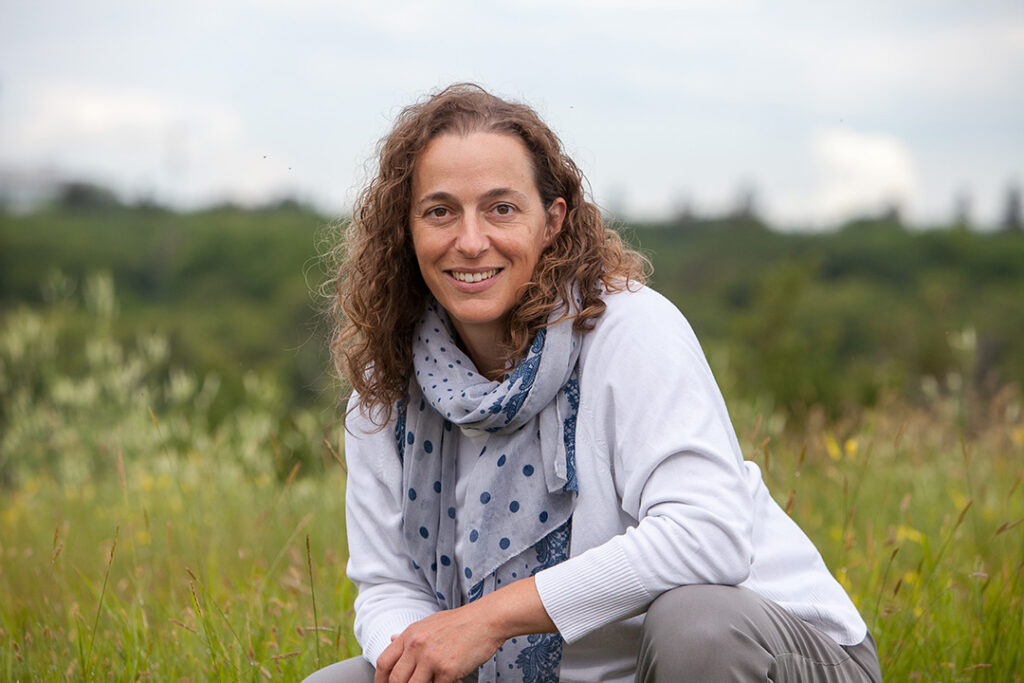A team led by Dr. Angela Bedard-Haughn (PhD), dean and professor of the College of Agriculture and Bioresources at the University of Saskatchewan (USask), and Dr. Cameron Carlyle (PhD) from the University of Alberta has been awarded $3.2 million in funding for research on carbon sequestration in perennial forage and pastures.
The funding was announced by Canada’s Minister of Agriculture and Agri-Food Marie-Claude Bibeau and Saskatchewan Minister of Agriculture David Marit as part of the Strategic Research Initiative (SRI) which advances research to address complex challenges faced by the agriculture and agri-food sectors.
The five-year project will examine soil carbon stocks in perennial forage systems across Saskatchewan and investigate the link between producer management practices and carbon stores to identify practices that promote carbon sequestration. One of the outcomes of the project will be maps providing an accurate estimate of carbon in Saskatchewan’s pasture and rangelands.
This project will fill a knowledge gap and increase our understanding of how the management of carbon in grazing systems across different environmental conditions will support climate change mitigation.
The application included 11 letters of support from different industry organizations, which reflect the importance of this work to the provincial agriculture sector. The project is co-funded by the Saskatchewan Cattlemen’s Association, which contributed $100,000 to the total amount and a $25,000 in-kind commitment.
The SRI is funded through the Canadian Agricultural Partnership, a five-year, $3 billion investment by federal, provincial and territorial governments that supports Canada’s agriculture, agri-food and agri-products sectors. This includes a $2 billion commitment that is cost-shared 60 per cent federally and 40 per cent provincially/territorially for programs that are designed and delivered by provinces and territories, including a $388 million investment in strategic initiatives for Saskatchewan agriculture.
Quotes:
“Soil carbon sequestration is one of many ways that agriculture can be part of the solution for climate change. This project will research what drives soil carbon dynamics under pasture and forage across Saskatchewan. How much is stored? Where? Why is there more here versus there? And how long is it likely to stick around?”
– Dr. Angela Bedard-Haughn (PhD), dean of the USask College of Agriculture and Bioresources
“Creative, collaborative and co-operative research is how our institution strives to deliver long-term benefits and resources for Saskatchewan’s agriculture sectors. This project will contribute significantly to our understanding of a complex issue. A better understanding leads to better decision making and practices within the industry. Ultimately, that is the kind of discovery the world needs.”
– Baljit Singh, USask vice-president of research
“Carbon sequestration is important to help mitigate the effects of climate change. This research will improve our understanding of the best practices for managing our grazing systems, and ensure producers will be well-positioned to further contribute to the sector’s long-term sustainability.”
– Marie-Claude Bibeau, Canada’s Minister of Agriculture and Agri-Food
“Our agriculture industry is grounded in best practices, and this project will add to it by confirming how we can mitigate climate change by managing our grazing systems. This is the kind of ag-related research we continually encourage and prioritize in Saskatchewan to keep our producers competitive, sustainable and working toward a future we can count on.”
– David Marit, Saskatchewan Minister of Agriculture
“The carbon economy must be built on a credible foundation. Despite a lot of activity, there still needs to be this baseline building on hay and grassland. This should help cattle producers credibly participate in whatever the carbon opportunity is. Meanwhile, cattle producers will continue managing their land for productivity along with the biodiversity and carbon sequestration that are intrinsic to grazing cattle.”
– Arnold Balicki, Saskatchewan Cattlemen’s Association Chair
